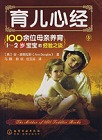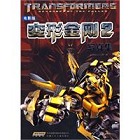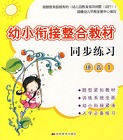PEP小学英语三年级下册Unit4Do you like pears?教学设计小学英语教案,
Unit 4 Do you like pears?
Teaching aims and demands:
1. 能听懂,会说Do you like---? Yes, I like--- No, I don’t like--- What about---?Yes, please. I like---very much. Let’s have some---Certainly.并能在实际情景中运用.要求模仿正确,语调自然.
2. 能听,说,认读一些常见水果的单词pear, peach, grapes, orange, watermelon, apple, banana, strawberry.并能听懂,会说以 Oo, Pp, Qq, Rr, Ss, Tt 打头的单词.orange, OK, peach, pear, queen, quiet, rain, rainbow, snake, squirrel, tiger, taxi.
3. 能听,说, 读,写字母 O o, P p, Q q, R r, S s, T t.
The first period
Teaching topics: Let’s learn. Let’s play.
Teaching aims: 1. The pupils can read and say these words: watermelon, peach, pear, orange.
2. The pupils can draw the fruits correctly.
The key points: The new words. watermelon , peach, pear, orange.
The difficult points: The pupils can listen and draw the fruits. And colour them correctly.
Teaching tools: cards, crayons and pictures.
Teaching time: one period
Teaching steps:
Step1. Warm-up/ Revision
1. Let’s chant. I can see a rainbow.
2. Greetings.
3. Unit3 Let’s do.
Step2. Presentation
1. The teacher shows the fruit pictures and says: Look. I have a peach. It’s pink. The pupils read the word “peach” after the teacher. Teach other words by the same way. For example: peach. pear , orange, watermelon.
2. Listen to the tape and read the new words until they can read them.
3. The teacher draws a watermelon on the Bb. Let the pupils know the meaning of draw. Then colour the watermelon green and black. Let the pupils draw pear, orange, peach and colour them.
Step3. Practice
1. Game 1: Divide the pupils into two groups. The pupils listen to the teacher carefully. One finds
www.ertong6.com
the pictures. And one finds the words. Then let’s see which group is faster. The faster is the winner.
2. Game 2: See and guess. Look at half of the pictures and guess what fruit it is.
3. Game 3: Listen, draw and colour. For example. Draw a peach. Colour it pink. Then show the pupils’ pictures.
Step4. Assessment
1. Topic: Part A. Let’s talk. Page 23 of Activity Book.
2. Listen and circle.
3. Assessment. (each other and by themselves.)
Step5. Add activities
Ask the pupils read the new words for their parents after school.
The second period
Teaching topics: Let’s talk. Let’s practise.
Teaching aims: 1. The pupils can read and say these words: watermelon, peach, pear, orange.
2. The pupils can talk about the fruits like this correctly. “Do you like apples? Yes, I do. No, I don’t.”
The key points: The new words: watermelon, peach, pear, orange. The sentences: “Do you like apples? Yes, I do. No, I don’t.”
The difficult points: The pupils can read the dialogue and talk about the fruits fluently.
Teaching tools: tape, cards, crayons and pictures.
Teaching time: one period
Teaching steps:
Step1. Warm-up/ Revision
1. Greetings.
2. Let’s chant. I can see a rainbow.
3. Show the cards and read the words.
4. Sing the song. “Let’s have a picnic today.”
Step2. Presentation
1. The teacher show the pupils the fruits on the desk and ask them say them in English.
2. T: I like hamburgers. Do you like hamburgers? The teacher helps the pupils answer “Yes, I do. Or No, I don’t like hamburgers.”
3. The teacher shows them a peach and asks: “Do you like peaches?” Let the pupils answer by themselves.
4. The teacher shows a hot dog and says: I like hot dogs very much. Teach: “very much” and let the pupils read it.
5. Show a cake and say: What about cakes? Do you like cakes? The teacher helps the pupils read and answer it.
6. Listen to the tape and rea
www.ertong6.com
d the dialogue of part A .
Step3. Practice
1. Practise the dialogue like this. “Do you like ---? Yes, I do . No , I don’t. Yes, I like it very much. Here you are. Thank you
2. .”
3. Group activity. Four pupils in group. They go on a picnic. Show them a list and make a survey. “Do you like ---?”
4. Act the dialogue.
5. Use other fruits and food. Make the dialogue and extend the dialogue.
Step4. Assessment
Let’s learn. Page 24 of Activity Book.
The third period
Teaching topics: Let’s say. Let’s chant.
Teaching aims: 1. The pupils can read and say these words: peach, pear, orange, OK, queen, quiet.
2. The pupils can listen, read say and write the letters: Oo, Pp, Qq correctly.
The key points: The new words and the new letters.
The difficult points: The pupils can listen and draw,read, say and write the letters correctly.
Teaching tools: cards, tape, crayons and pictures.
Teaching time: one period
Teaching steps:
Step1. Warm-up/ Revision
1. Greetings.
2. Game: Who has the good memory? For example. I like peaches, apples, hamburgers and ---.
Step2. Presentation
1. The teacher shows the picture of orange and asks: What’s this? It’s an “orange”. Point at the first letter and asks: What letter is this? Help the pupils answer and teach the letter “Oo”. Then “OK”. Teach other letters Pp and Qq by the same way.
2. Listen to the tape and read the letters and words after the tape.
3. Let’s chant. Listen to the tape. Show the cards: French fries, bread, ice-cream, hamburger, hot dog, chicken. Tell the pupils the meaning of enjoy.
Step3. Practice
1. Game: Find the friends. Match the letters. For example: O—o. P—p. Q—q.
2. Look and draw. Draw these words. orange , peach, pear, queen, quiet.
3. Write the letters in the activity book.
4. Say the chant. Divide the pupils into two groups. One says the front part. One says the b
www.ertong6.com
ack part.
Step4. Assessment
1. Let’s say. Page 25 of activity book.
2. Letter practice. Listen, colour and match.
Step5. Add activities
Say the chant for their parents.
The fourth period
Teaching topics: Let’s talk. Let’s practise.
Teaching aims: 1. The pupils can read and say these words: sorry, certainly .
2. The pupils can talk about the fruits like this correctly. “Do you like apples? Yes, I do. No, I don’t.”
The key points: The new words: sorry, certainly. The sentences: “Do you like apples? Yes, I do. No, I don’t.”
The difficult points: The pupils can read the dialogue and talk about the fruits fluently.
Teaching tools: tape, cards, crayons and pictures.
Teaching time: one period
Teaching steps:
Step1. Warm-up/ Revision
1. Greetings.
2. Act the dialogue of Part A. Let’s talk.
3. Say the chant of Part A.
4. Game: Finish the chart. Use this sentence: “ Do you like ---?”
Step2. Presentation
1. Show the picture of Let’s talk. T: Look. These children have a party at Miss White’s home today. They are having some fruits. Then teach “fruit”.
2. T: What do I like? Can you guess?
Ss: Do you like ---?
T: Sorry, I don’t like ---
Teach sorry and tell the pupils the meaning.
3. T: Can I have an/ a/ some---?
Ss: Sure. Here you are. / Certainly. Teach certainly.
4. Listen to the tape and read the dialogue.
Step3. Practice
1. Practice the dialogue in pairs. Do you like---? Can I have ---? Certainly. Sure. Here you are.
2. Act the dialogue.
Step4. Assessment
Page 26 of Activity Book. Listen and match.
Step5. Add activities
Listen to the tape and read the dialogue after school.
www.ertong6.com
The fifth period
Teaching topics: Let’s learn. Let’s sing.
Teaching aims: 1. The pupils can read and say these words: apple, banana, strawberry, grapes.
2.The pupils can listen and draw the fruits correctly.
3. The pupils can sing the song “ An apple a day.”
The key points: The new words. apple, banana, strawberry, grapes.
The difficult points: The pupils can listen and draw the fruits. And colour them correctly.
Teaching tools: tape, cards, crayons and pictures.
Teaching time: one period
Teaching steps:
Step1. Warm-up/ Revision
1. Greetings.
2. Act the dialogue of Part B. Let’s talk.
3. Listen to the song. “ An apple a day”
4. Revise the fruit words of Part A.
Step2. Presentation
1. Show the old fruit words and teach the new words: apple , banana, strawberry, grapes.
2. Read the new words until the pupils can read them.
3. Listen to the tape and sing the song.
Step3. Practice
1. Game: Who catches the cards fastest? Listen to the tape and run to the cards.
2. Game: Listen and colour. T: Draw an apple. Colour it red. Draw a banana. Colour it yellow. Draw a pear. Colour it yellow. Draw some grapes. Colour them purple.
Step4. Assessment
Page 27 of activity book. Listen and draw.
Step5. Add activities
1. Listen to the tape and read the words and sentences.
2. Say the new words for their parents.
The sixth period
Teaching topics: Let’s say. Let’s do.
Teaching aims: 1. The pupils can read and say these words: rainbow, rain, snake, squirrel, tiger, taxi .
2. The pupils can listen, read
www.ertong6.com
say and write the letters: Rr, Ss, Tt correctly.
The key points: The new words and the new letters.
The difficult points: The pupils can listen and draw, read, say and write the letters correctly.
Teaching tools: cards, tape, crayons and pictures.
Teaching time: one period
Teaching steps:
Step1. Warm-up/ Revision
1. Greetings.
2. Sing the colour song.
3. Game: Simon says. Let’s do. Act like an elephant. Act like a mouse. Act like a squirrel and so on.
Step2. Presentation
1. Act like a rabbit and say: I am a rabbit. How do you spell “ rabbit”? Point at the first letter R and teach the letter.
2. Show the letter card: Rr.
3. Draw a rainbow and say: What colour is this? What colour is that? What’s this ? It’s a rainbow. Then teach the letter “ Rr”.
4. Act to teach the words snake and squirrel. Then teach the letter Ss.
5. Show the picture of tiger and taxi. Then teach the letter Tt.
6. Listen to the tape and read the letters and words.
7. Listen and say the let’s do.
Step3. Practice
1. Game: Find the friends. Match the letters.
2. Game: Guess. Act like the animals and guess what animal it is.
3. Match the pictures and the words. rainbow, rain, squirrel, snake, tiger, taxi.
4. Write the letters two lines.
5. Game: Listen and do the actions. Let’s do.
Step4. Assessment
Page 28 of the activity book. Listen , colour and match the letters.
Step5. Add activities
Sing the song to their parents.














